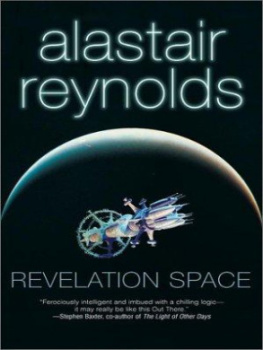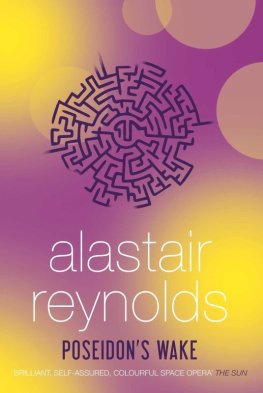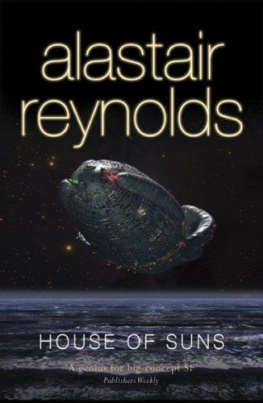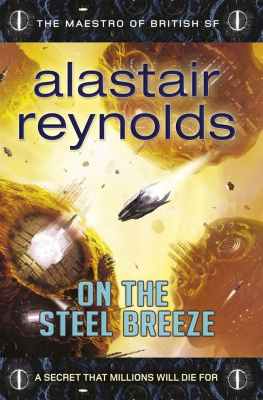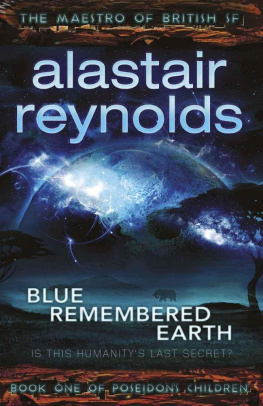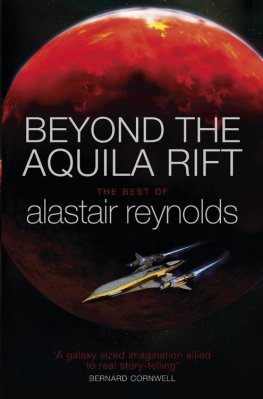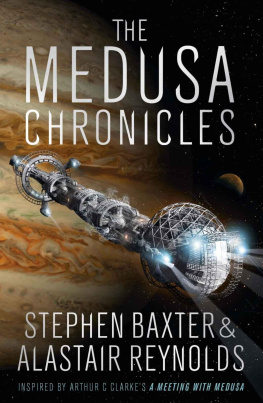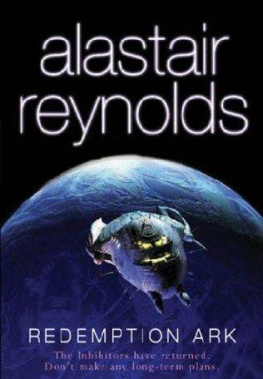Alastair Reynolds - Zima Blue
Here you can read online Alastair Reynolds - Zima Blue full text of the book (entire story) in english for free. Download pdf and epub, get meaning, cover and reviews about this ebook. year: 2005, publisher: PS Publishing, genre: Science fiction. Description of the work, (preface) as well as reviews are available. Best literature library LitArk.com created for fans of good reading and offers a wide selection of genres:
Romance novel
Science fiction
Adventure
Detective
Science
History
Home and family
Prose
Art
Politics
Computer
Non-fiction
Religion
Business
Children
Humor
Choose a favorite category and find really read worthwhile books. Enjoy immersion in the world of imagination, feel the emotions of the characters or learn something new for yourself, make an fascinating discovery.

- Book:Zima Blue
- Author:
- Publisher:PS Publishing
- Genre:
- Year:2005
- ISBN:1-904619-33-9
- Rating:4 / 5
- Favourites:Add to favourites
- Your mark:
- 80
- 1
- 2
- 3
- 4
- 5
Zima Blue: summary, description and annotation
We offer to read an annotation, description, summary or preface (depends on what the author of the book "Zima Blue" wrote himself). If you haven't found the necessary information about the book — write in the comments, we will try to find it.
Zima Blue — read online for free the complete book (whole text) full work
Below is the text of the book, divided by pages. System saving the place of the last page read, allows you to conveniently read the book "Zima Blue" online for free, without having to search again every time where you left off. Put a bookmark, and you can go to the page where you finished reading at any time.
Font size:
Interval:
Bookmark:
Zima Blue
by Alastair Reynolds
After the first week people started drifting away from the island. The viewing stands around the pool became emptier by the day. The big tourist ships hauled back toward interstellar space. Art fiends, commentators and critics packed their bags in Venice. Their disappointment hung over the lagoon like a miasma.
I was one of the few who stayed on Murjek, returning to the stands each day. Id watch for hours, squinting against the trembling blue light reflected from the surface of the water. Face down, Zimas pale shape moved so languidly from one end of the pool to the other that it could have been mistaken for a floating corpse. As he swam I wondered how I was going to tell his story, and who was going to buy it. I tried to remember the name of my first newspaper, back on Mars. They wouldnt pay as much as some of the bigger titles, but some part of me liked the idea of going back to the old place. It had been a long time I queried the AM, wanting it to jog my memory about the name of the paper. Thered been so many since hundreds, by my reckoning. But nothing came. It took me another yawning moment to remember that Id dismissed the AM the day before.
Youre on your own, Carrie, I said. Start getting used to it.
In the pool, the swimming figure ended a length and began to swim back toward me.
Two weeks earlier Id been sitting in the Piazza San Marco at noon, watching white figurines glide against the white marble of the clock tower. The sky over Venice was jammed with ships parked hull-to-hull. Their bellies were quilted in vast glowing panels, tuned to match the real sky. The view reminded me of the work of a pre-Expansion artist who had specialised in eye-wrenching tricks of perspective and composition: endless waterfalls, interlocking lizards. I formed a mental image and queried the fluttering presence of the AM, but it couldnt retrieve the name.
I finished my coffee and steeled myself for the bill.
Id come to this white marble version of Venice to witness the unveiling of Zimas final work of art. Id had an interest in the artist for years, and Id hoped I might be able to arrange an interview. Unfortunately several thousand other members of the in-crowd had come up with exactly the same idea. Not that it mattered what kind of competition I had anyway; Zima wasnt talking.
The waiter placed a folded piece of card on my table.
All wed been told was to make our way to Murjek, a waterlogged world most of us had never heard of before. Murjeks only claim to fame was that it hosted the one hundred and seventy-first known duplicate of Venice, and one of only three Venices rendered entirely in white marble. Zima had chosen Murjek to host his final work of art, and to be the place where he would make his retirement from public life.
With a heavy heart I lifted the bill to inspect the damage. Instead of the expected bill there was a small blue card, printed in fine gold italic lettering. The shade of blue was that precise, powdery, aquamarine that Zima had made his own. The card was addressed to me, Carrie Clay, and it said that Zima wanted to talk to me about the unveiling. If I was interested, I should report to the Rialto Bridge in exactly two hours.
If I was interested.
The note stipulated that no recording materials were to be brought, not even a pen and paper. As an afterthought, the card mentioned that the bill had been taken care of. I almost had the nerve to order another coffee and put it on the same tab. Almost, but not quite.
Zimas servant was there when I arrived early at the bridge. Intricate neon mechanisms pulsed behind the flexing glass of the robots mannequin body. It bowed at the waist and spoke very softly. Miss Clay? Since youre here, we might as well depart.
The robot escorted me to a flight of stairs that led to the waterside. My AM followed us, fluttering at my shoulder. A conveyor hovered in waiting, floating a metre above the water. The robot helped me into the rear compartment. The AM was about to follow me inside when the robot raised a warning hand.
Youll have to leave that behind, Im afraid: no recording materials, remember?
I looked at the metallic green hummingbird, trying to remember the last time I had been out of its ever-watchful presence.
Leave it behind?
Itll be quite safe here, and you can collect it again when you return after nightfall.
If I say no?
Then Im afraid therell be no meeting with Zima.
I sensed that the robot wasnt going to hang around all afternoon waiting for my answer. The thought of being away from the AM made my blood run cold. But I wanted that interview so badly I was prepared to consider anything.
I told the AM to stay here until I returned.
The obedient machine reversed away from me in a flash of metallic green. It was like watching a part of myself drift away. The glass hull wrapped itself around me and I felt a surge of un-nulled acceleration.
Venice tilted below us, then streaked away to the horizon.
I formed a test query, asking the AM to name the planet where Id celebrated my seven hundredth birthday. Nothing came: I was out of query range, with only my own age-saturated memory to rely on.
I leaned forward. Are you authorised to tell me what this is about?
Im afraid he didnt tell me, the robot said, making a face appear in the back of his head. But if at any moment you feel uncomfortable, we can return to Venice.
Im fine for now. Who else got the blue card treatment?
Only you, to the best of my knowledge.
And if Id declined? Were you supposed to ask someone else?
No, the robot said. But lets face it, Miss Clay. You werent very likely to turn him down.
As we flew on, the conveyors shock wave gouged a foaming channel in the sea behind it. I thought of a brush drawn through wet paint on marble, exposing the white surface beneath. I took out Zimas invitation and held it against the horizon ahead of us, trying to decide whether the blue was a closer match to the sky or the sea. Against these two possibilities the card seemed to flicker indeterminately.
Zima Blue. It was an exact thing, specified scientifically in terms of angstroms and intensities. If you were an artist, you could have a batch of it mixed up according to that specification. But no one ever used Zima Blue unless they were making a calculated statement about Zima himself.
Zima was already unique by the time he emerged into the public eye. He had undergone radical procedures to enable him to tolerate extreme environments without the burden of a protective suit. Zima had the appearance of a well-built man wearing a tight body stocking, until you were close and you realised that this was actually his skin. Covering his entire form, it was a synthetic material that could be tuned to different colours and textures depending on his mood and surroundings. It could approximate clothing if the social circumstances demanded it. The skin could contain pressure when he wished to experience vacuum, and stiffen to protect him against the crush of a gas giant planet. Despite these refinements the skin conveyed a full range of sensory impressions to his mind. He had no need to breathe, since his entire cardiovascular system had been replaced by closed-cycle life-support mechanisms. He had no need to eat or drink; no need to dispose of bodily waste. Tiny repair machines swarmed through his body, allowing him to tolerate radiation doses that would have killed an ordinary man in minutes.
With his body thus armoured against environmental extremes, Zima was free to seek inspiration where he wanted. He could drift free in space, staring into the face of a star, or wander the searing canyons of a planet where metals ran like lava. His eyes had been replaced by cameras sensitive to a huge swathe of the electromagnetic spectrum, wired into his brain via complex processing modules. A synaes-thesic bridge allowed him to hear visual data as a kind of music; to see sounds as a symphony of startling colours. His skin functioned as a kind of antenna, giving him sensitivity to electrical field changes. When that wasnt sufficient, he could tap into the data feeds of any number of accompanying machines.
Font size:
Interval:
Bookmark:
Similar books «Zima Blue»
Look at similar books to Zima Blue. We have selected literature similar in name and meaning in the hope of providing readers with more options to find new, interesting, not yet read works.
Discussion, reviews of the book Zima Blue and just readers' own opinions. Leave your comments, write what you think about the work, its meaning or the main characters. Specify what exactly you liked and what you didn't like, and why you think so.


